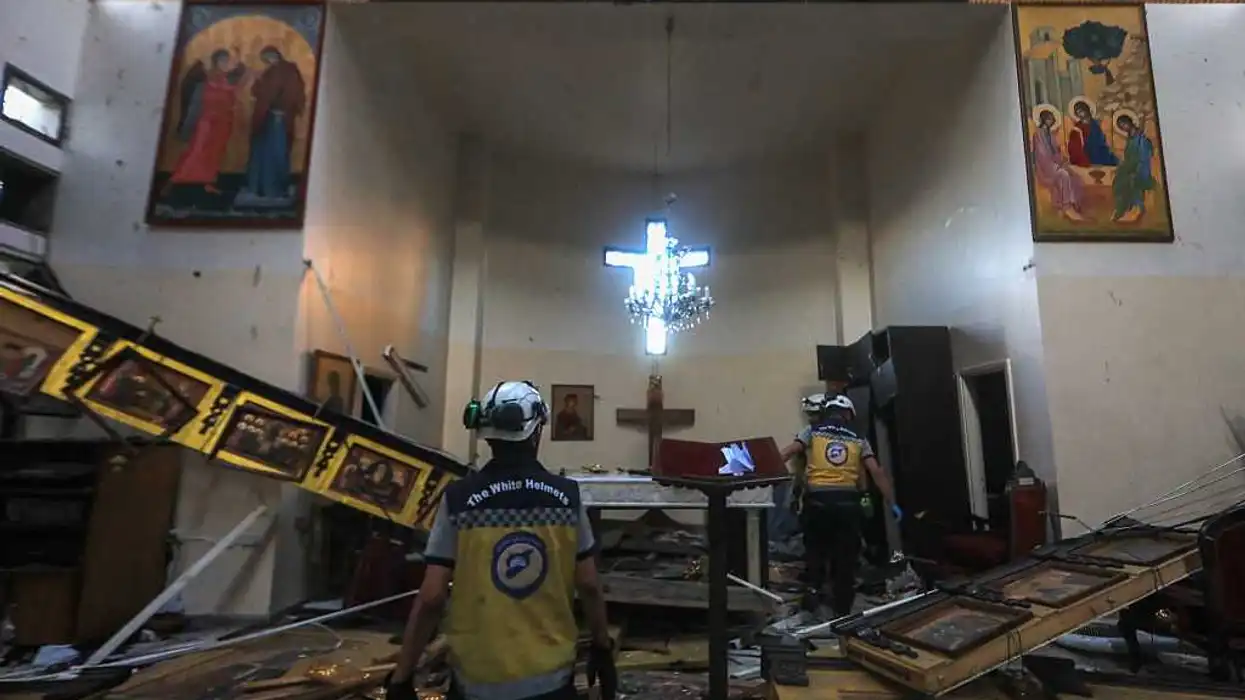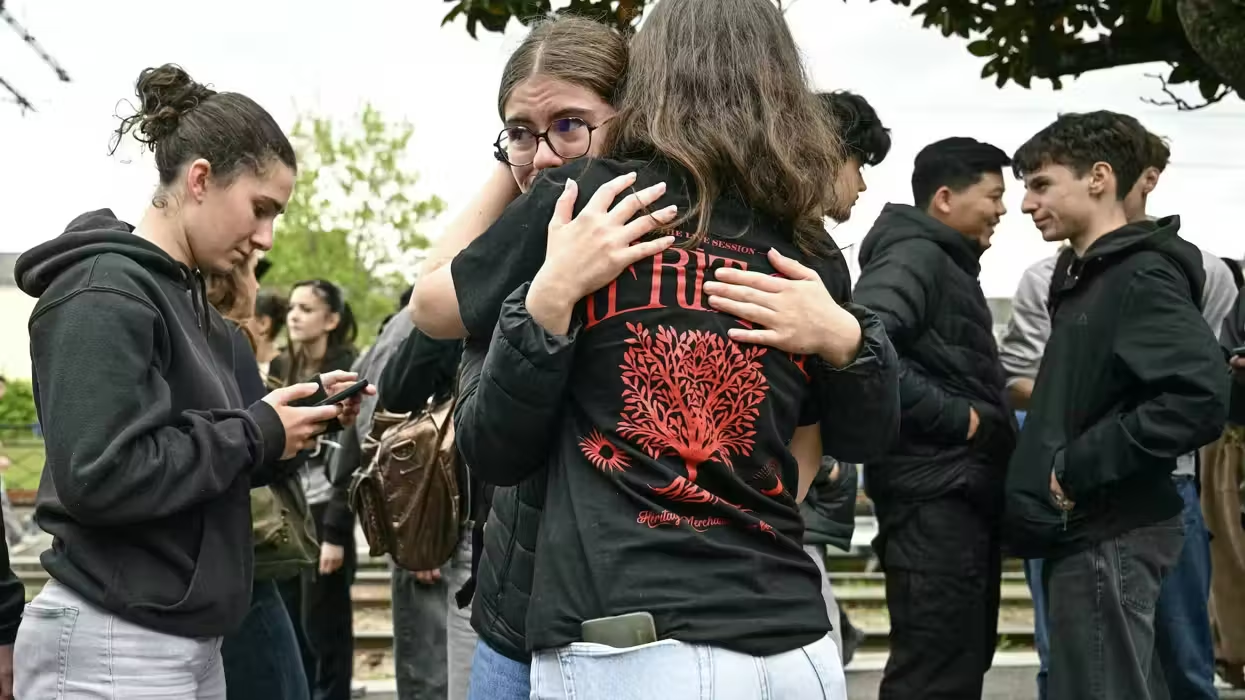
© 2025 Blaze Media LLC. All rights reserved.
Experts Warn Ebola Outbreak Is 'Not Finished, by a Long Shot' — Here's What Has Them Worried
September 09, 2015
"The old advice of three months is no longer good."
Though several of the West African countries most impacted by the worst Ebola outbreak in history have declared themselves free of the devastating virus, experts say the fight against it overall is far from over.
 A man walks past a billboard warning people of the deadly Ebola virus in Monrovia, Liberia. (AP/ Abbas Dulleh)
A man walks past a billboard warning people of the deadly Ebola virus in Monrovia, Liberia. (AP/ Abbas Dulleh)
"This virus and this outbreak in particular has a nasty sting in the tail," the World Health Organization's lead on Ebola response Bruce Aylward said, according to Reuters. "It's not finished, by a long shot."
Aylward led a new study to be published in the New England Journal of Medicine that still found traces of the virus in semen after six months in half of men considered to be Ebola survivors — three months longer than the virus was previously thought to remain in survivors' systems.
"The old advice of three months is no longer good," a clinician, who was not identified by name but was familiar with the study, told Reuters. "The number of people with persistent virus in their semen is much greater than expected."
Aylward, speaking at a news conference, said that while the risk of Ebola spreading through sexual transmission is not necessarily high, but could be related to why some countries still have not completely been able to shake the disease.
According to the WHO, sexual transmission of the Ebola virus from a male to a female "is a strong possibility, but has not yet been proven."
The WHO currently recommends that male survivors be offered three months of semen testing and to abstain from sex or use condoms until their semen tests negative twice. If the survivor's semen has not been tested, WHO recommended that safe sex practices be continued for at least six months.
One country that has seen several new cases of Ebola recently is Sierra Leone.
Sierra Leone's National Ebola Response Center said that three new cases of Ebola emerged in an area where a 67-year-old woman died in late August, bringing the total new cases in treatment to four.
Alfred Palo Conteh said Tuesday that three new cases were confirmed Monday, adding that four people are in treatment after another case was confirmed Sept. 5.
Palo Conteh said the new cases were in contact with the woman who died in the northern Kambia district on Aug. 28. Samples from her body came back positive less than a week after the country's last known patient was discharged from the hospital.
The WHO declared Liberia Ebola-free for a second time earlier this month after the country hardest hit by the deadly virus saw a brief resurgence of cases not long after the first time it thought the disease was gone for good. It's now within a 90-day surveillance period.
More than 11,300 people died in the Ebola outbreak.
—
The Associated Press contributed to this report. Front page image via Shutterstock.
Want to leave a tip?
We answer to you. Help keep our content free of advertisers and big tech censorship by leaving a tip today.
Want to join the conversation?
Already a subscriber?
more stories
Sign up for the Blaze newsletter
By signing up, you agree to our Privacy Policy and Terms of Use, and agree to receive content that may sometimes include advertisements. You may opt out at any time.
Related Content
© 2025 Blaze Media LLC. All rights reserved.
Get the stories that matter most delivered directly to your inbox.
By signing up, you agree to our Privacy Policy and Terms of Use, and agree to receive content that may sometimes include advertisements. You may opt out at any time.






